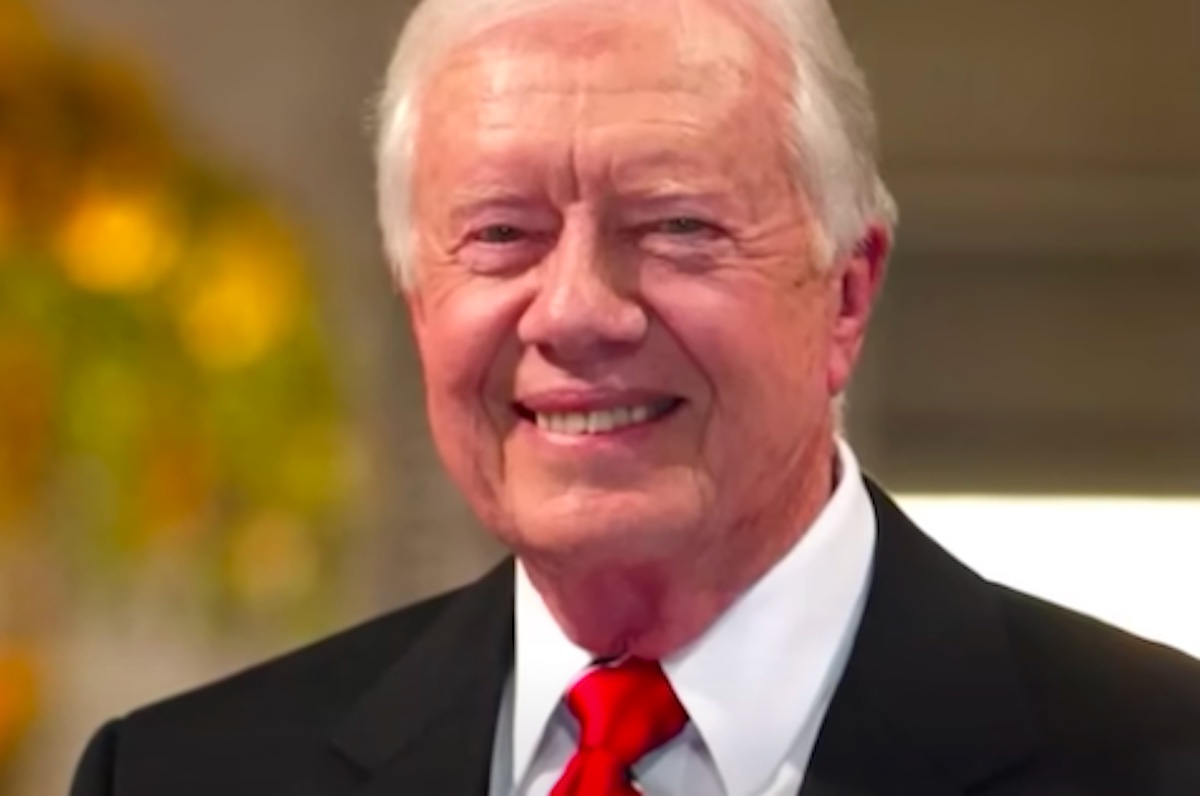Jimmy Carter, the peanut farmer who became the 39th president of the United States and later won the Nobel Peace Prize, died on Sunday (December 29) at his home in Plains, Georgia, according to his son, Chip Carter. At 100 years old, he was the longest-living U.S. president in history. Plagued by economic and other problems during his four years in office, he rose to greatness later as a champion of democracy and human rights.
Carter’s death comes just months after he lost his wife Rosalynn, who died in November 2023 at age 96. Their marriage of over 77 years is the longest presidential marriage in American history. They married after he graduated from the US Naval Academy with a Bachelor of Science degree. As a naval lieutenant, he was part of the crew that built and prepared the first US nuclear-powered submarine, the Nautilus, recalls the New York Times. Subsequently, he became a peanut farmer and entered politics.
Elected governor of Georgia, he served a four-year term from 1971 to 1975 before aspiring to the highest office in the land. In 1976, he ran for president and defeated incumbent Republican Gerald Ford. He made history as the first president from the Deep South since 1837, according to the Washington Post. What’s more, he was the only Democrat elected president between the administrations of Lyndon B. Johnson (1963-1969) and Bill Clinton (1993-2001).
Carter administration problems
As president from 1977 to 1981, Carter faced significant challenges, including economic stagflation, an energy crisis, and the Iran hostage crisis. While his presidency was often viewed critically at the time, historical assessments have grown more favourable, recognising his prescient focus on environmental issues, human rights, and racial equality. His crowning achievement was brokering the Camp David Accords between Israel and Egypt in 1978, a peace agreement that has endured for decades.
After leaving office, Carter carved out an extraordinary post-presidential career focused on humanitarian work and peacemaking. He and Rosalynn founded the Carter Center in 1982, which has monitored over 115 elections in 40 countries and worked to advance democracy, human rights, and public health globally. The Carters also devoted themselves to Habitat for Humanity, personally helping to build or renovate more than 4,300 homes across 14 countries.
Never wanted to be rich
Unlike many former presidents who pursued lucrative speaking engagements and corporate board positions, Carter chose a modest post-presidential life in his hometown of Plains, Georgia. “It just never had been my ambition to be rich,” he said.
Defeated by Ronald Reagan in the 1980 presidential election, he returned with his wife to “the first and only house they had owned — a modest one-storey rancher valued in 2018 at just $167,000 — “a figure that the Washington Post noted was less than the cost of the armoured Secret Service vehicles parked outside day and night”, says the New York Times.
Carter felt at home there. “Until late in their lives, he and Mrs Carter frequently were seen walking hand in hand along Church Street on their way home from Saturday dinners at the home of their friend Jill Stuckey,” says the Washington Post.
He authored 33 books, won three Grammy Awards for audio recordings of his works, and in 2002 was awarded the Nobel Peace Prize for his “decades of untiring effort to find peaceful solutions to international conflicts”. The three other American presidents who won the prize — Theodore Roosevelt, Woodrow Wilson and Barack Obama — all received the honour while still in office.
Vindicated by history
Despite initial criticism of his presidency, Carter lived long enough to see many of his policies and positions vindicated by history, says the Washington Post. Recent biographies have argued that he was “perhaps the most misunderstood president in American history”, noting his forward-thinking positions on issues like climate change and racial justice. Carter remained true to his principles throughout his life, maintaining his characteristic humility and dedication to public service until the end.
His final months were spent at home under hospice care following several hospital stays and treatment for melanoma that had spread to his liver and brain. He will be buried next to Rosalynn near a willow tree by a pond he helped dig on their property in Plains, the inseparable couple at everlasting rest in their beloved home.
Reflecting on his life, Carter once said: “I kept our country at peace and championed human rights, and that’s a rare thing for post-World War II presidents to say.” With his passing, America has lost a man whose presidency was a prelude to an extraordinary second act, one defined by grace, generosity, and a steadfast commitment to making the world a better place.

